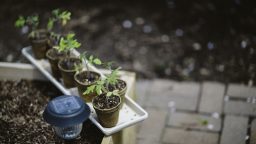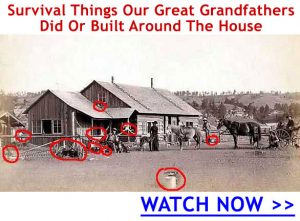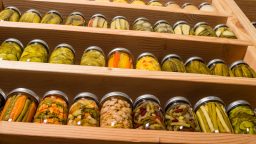In our modern society, many of us dream of finding a way to get back to simpler times. We yearn for the days when people grew and preserved their own food and relied more on themselves and less on technology.
If that sounds familiar, then you might want to start a homestead. Whether you already own a substantial tract of land out in the country or you’re renting a city apartment, there are things you can do right now to get things underway.
Starting Small
Do you live in a city or the suburbs? If so, you might not have the wherewithal to be fully self-sufficient – at least, not yet.

That doesn’t mean that you can’t get started with homesteading in a small way. Let’s start with what you can do in a city apartment or condominium.
- You can install window boxes in sunny windows and grow herbs and vegetables for your kitchen.
- If there’s a community garden near you, see if you can rent a plot.
- If you have a fireplace, you can switch to wood heat during the cold winter months.
- You can preserve food that you grow or buy.
Each of these things is something you can do without a lot of space. They can give you a taste of homesteading while you work toward your long-term goals.
If you’re in the suburbs, you have more options.
- If your yard space permits it, you can grow a garden or even put in a greenhouse.
- You may be able to plant fruit trees.
- In some suburbs, you may be able to put in a chicken coop and raise chickens. (Check your city or town ordinances before buying!)
- You can install wood-burning stoves for heat.
- Just as you can in the city, you can preserve food.
Growing and preserving food can help you learn essential homesteading skills even if you’re not living in the country.
Educate Yourself about Homesteading
There’s no question that there’s a steep learning curve for new homesteaders. That’s especially true if you are heavily reliant on mass-produced items and public services.
That’s why one of the best things you can do to start homesteading is to learn about it. Go to your local library or bookstore and stock up on books about homesteading.
Here are some topics to learn about as you work toward your homesteading goals:
- Gardening (focus on plants that are likely to do well in the climate where you plan to live)
- Preserving food (canning, pickling, dehydrating/drying) “7 Steps for Easy Canning”
- Root cellaring (4 Nifty Alternatives to the Standard Root Cellar)
- Power generation (solar power, hydroelectric power, wind power, etc.) Solar Energy Options
- Raising livestock “3 Keys to Choosing the Perfect Livestock”
The more you learn about these topics, the better prepared you’ll be when the time comes to move to a homestead. Of course, you can check out our blog posts and resources for information, too!
Make a Homesteading Plan
The next thing you’ll need to do is make a homesteading plan. Even if you can’t afford to buy a homestead, you can still take steps to become self-sufficient.
For example, you might decide that growing food is your top priority. If that’s the case, you can build garden beds, install window boxes, and plant trees.
As we mentioned above, you may be able to keep chickens – some cities allow it and many suburbs do. There may be restrictions in place concerning proximity to your neighbors, so make sure to check.
At the same time, you can be saving money or checking out country properties to make the switch to a true homestead.
How did you get started homesteading? Do you have questions? Tell us in the comments!



